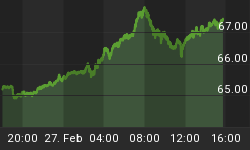Hordes of China’s private firms are now going under after guaranteeing other’s loans.
China’s debt crisis has been christened many unflattering names, including a ‘mountain,’ ‘bomb,’ ‘horror movie,’ and ‘treadmill to hell.’ Well, the reality is that it’s probably a combination of all the above.
The unfolding collapse in the country’s complex web of debt guarantees clearly highlights the vulnerability of its financial system even as it opens up a hazardous front for an economy deep in the throes of the most dramatic slowdown in growth in three decades.
China has been trying to slam the brakes on unsustainable levels of debt that have powered the economy for decades. But the extent of just how much the country had come to rely on borrowed money is now beginning to unravel.
Financial deleveraging
Financial deleveraging was a key goal of President Xi Jinping’s 2015 supply-side structural reform plan. The campaign was meant to curb growing risks in the country’s overheating financial markets mainly through tighter asset management and clamping down on shadow financing.
A couple of years down the line, hordes of private Chinese firms have been folding up as they struggle to raise new funds to repay old debts let alone survive. Corporate debt defaults tripled in 2018 after reaching a record 115.45 billion yuan and experts have warned to expect even more.
Yet, another unexpected problem has surfaced: many companies that guaranteed other ’s loans are unable to honor their obligations. This contagion risk in a web of cross-guarantee system is the last thing that the country needs even as the government calls on state banks to boost lending to the private sector. The warning bells have already sounded in the once-prosperous city of Dongying, a famous oil refinery and industrial hub. Related: Gold Inches Upward On Dollar Weakness
According to Reuters, no less than 28 firms in the city are now seeking to avoid bankruptcy by restructuring their debts as the loans they guaranteed for other firms turn soar. Among the 28 include iconic names such as Shandong Jinmao Textile Chemical Group and Shandong Dahai Group, both of which featured in the list of China’s top 500 best-run private enterprises for 2018.
Private firms in China, especially those that operate in traditional, capital-intensive industries, often require substantial collateral or guarantees by other companies before they can secure bank loans. But in a nation so heavily indebted, there’s a strong likelihood that the guarantors themselves have taken on loans guaranteed by other firms--ad infinitum. Unfortunately, the two companies mentioned here are simply the tip of the iceberg. Cross-guaranteeing is a common practice in China where defaults can quickly cascade across the system when a single loan goes bad and threaten to disrupt new lending and local financial systems.
You can hardly blame private firms for being overzealous when lending a helping hand to a friend in need. The Chinese system is incredibly skewed in favor of government enterprises with private firms only receiving 25 percent of loans disbursed despite contributing 50 percent of taxes; 60 percent of GDP and 90 percent of new hires. With funds hard to come by, the sector has to rely heavily on guarantees which add 2-3 percentage points to their financing costs.
Non-performing loans surge
How bad is the cross-guarantee problem? Probably worse than you would imagine. Shandong Dahai Group has guaranteed debt for 14 companies adding up to 2.67 billion yuan ($394 million) or nearly half of its total assets. Of the 14, 6 have already run into financial or legal trouble while two have been blacklisted by the courts as ‘dishonest debtors’ due to their abysmal creditworthiness.
Related: Major Gold Analysts Predict A Good Year For Precious Metals
Meanwhile, the resource-rich Dongying area has seen two prominent banks-- Guangrao Rural Commercial Bank and Dongying Bank – hit by a sudden surge of non-performing loans that threaten their very survival. More than 95 percent of Guangrao Rural’s bad loans were backed guarantors who themselves were heavily indebted.
China’s top banking regulator, Guo Shuqing, has been calling for banks to double their funding allocations to private companies to 50 percent. But even with the country having cut down reserve requirements five times in 2018, banks are preferring to use the freed up liquidity to buy expensive bonds than lend to local businesses. This clearly illustrates just another reason why the country is now facing the worst slowdown in economic growth in decades.
By Alex Kimani for Safehaven.com
















